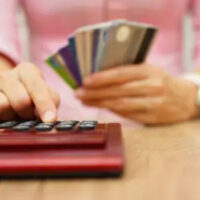How Credit Card Debt is Handled in Bankruptcy Proceedings

Credit card debt is a common issue that leads many individuals to consider bankruptcy. At Wadhwani & Shanfeld, we often encounter clients seeking clarity on how their credit card debt will be treated in bankruptcy proceedings. Consulting with Los Angeles bankruptcy attorneys can demystify the process and provide essential insights into managing credit card debt through bankruptcy.
The Nature of Credit Card Debt in Bankruptcy
Credit card debt is typically classified as unsecured debt. This means it’s not tied to any collateral, unlike a mortgage or car loan. In bankruptcy proceedings, unsecured debts are treated differently based on the type of bankruptcy filed.
Chapter 7 Bankruptcy and Credit Card Debt
Chapter 7, often referred to as liquidation bankruptcy, can lead to the discharge of most unsecured debts, including credit card debt. However, eligibility depends on passing the means test and other criteria.
Upon filing, an automatic stay is put in place, halting most collection efforts, including those for credit card debt.
In most Chapter 7 cases, credit card debts are discharged, meaning you are no longer legally obligated to pay them. However, this is subject to certain exceptions, such as debts incurred through fraud.
Chapter 13 Bankruptcy and Credit Card Debt
Chapter 13, also known as reorganization bankruptcy, involves a repayment plan, typically lasting 3-5 years. Credit card debts are included in this plan, often at a reduced rate.
In Chapter 13, credit card debt is considered non-priority unsecured debt. This means it’s often paid after priority debts, like child support, and secured debts, like a mortgage.
Credit card debts may be partially repaid through the Chapter 13 plan. The exact amount depends on your disposable income and the total debt amount.
At the end of the repayment plan, most remaining unsecured debts, including credit card debts, are typically discharged.
Special Considerations
Debts from credit card charges made shortly before filing for bankruptcy might not be discharged, as they can be seen as fraudulent.
Large purchases or cash advances taken shortly before filing may be scrutinized and potentially excluded from discharge.
If you have a joint credit card account, bankruptcy may discharge your obligation but not that of the other account holder.
Preparing for Bankruptcy with Credit Card Debt
Once you decide to file for bankruptcy, it’s advisable to stop using your credit cards to avoid complications.
Compile all statements and records of your credit card debts. Accurate documentation is crucial for a smooth bankruptcy process.
An experienced bankruptcy attorney can provide personalized advice based on your specific situation and guide you through the process.
Life After Bankruptcy
After bankruptcy, you’ll need to work on rebuilding your credit. This can involve secured credit cards, budget management, and timely payments on any remaining debts.
Many individuals benefit from financial counseling or education courses post-bankruptcy to avoid future debt issues.
Developing a long-term financial plan is key to maintaining financial stability and avoiding future debt accumulation.
Contact Wadhwani & Shanfeld
Dealing with credit card debt through bankruptcy can be a pathway to financial relief and a fresh start. Whether through Chapter 7 or Chapter 13, understanding how your credit card debt will be treated is crucial for making informed decisions. At Wadhwani & Shanfeld, we are committed to guiding you through the complexities of bankruptcy and helping you achieve a debt-free future. Contact us for expert legal advice tailored to your unique financial situation.
Sources:
abi.org/feed-item/filing-bankruptcy-for-credit-card-debt
experian.com/blogs/ask-experian/can-i-file-for-bankruptcy-with-35k-credit-card-debt/
